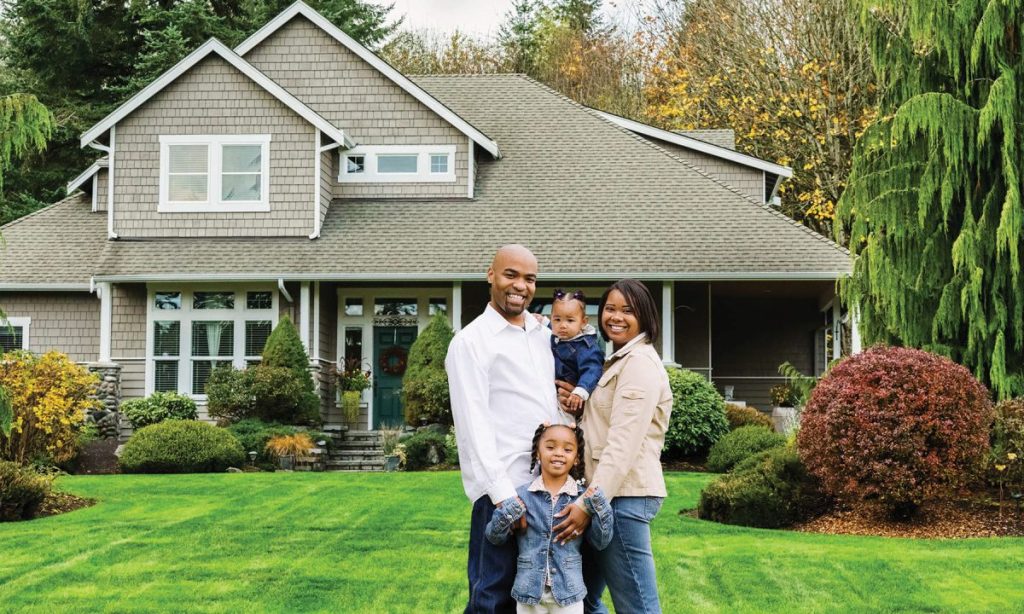Pilot training and education program brings potential to transform industry
By Charlene Crowell
For most consumers, buying a home is the single-largest investment of their lifetimes. But for Black America, home equity – the increase in market value from the time of purchase – is often the dominant, if not sole source of wealth-building. Home equity represents 65 percent of all Black wealth, according to the nation’s oldest minority professional trade association, National Association of Real Estate Brokers (NAREB).
Yet the unfortunate reality for Black homeowners, according to NAREB is that systemic discrimination used in appraisals that determine home fair market values all too often perpetuate — instead of narrow — racial wealth gaps, for homeowners and buyers alike. These mandatory reports are a key factor used by lenders to reach decisions on loan applications to purchase, sell or improve homes.
Home Appraisals in Black and White, a new NAREB research report, examines disparities in the estimated value of homes by racial neighborhood composition. Analyzing housing data from 2021 and 2023, its two authors James H. Carr and his colleague, Michela Zonta, both housing finance and urban policy experts, reached a startling finding: Blacks have lost $150 billion in home equity due to biased home appraisals.

According to Courtney Johnson Rose, NAREB president, “For decades, the undervaluing of property in African American neighborhoods has contributed to the expansive Black-White wealth gap in America, a spread so expansive that the 400 wealthiest Americans control the same wealth as all 48 million Blacks.”
In Black neighborhoods with large shares of homeowners, homes were undervalued by 47 percent, compared to similar homes in White neighborhoods with no Black borrowers. These lower property values prevent Black families from building and earning comparable wealth via home equity than similarly-situated white neighborhood homeowners, and additionally suppresses the ability of Black homeowners to develop intergenerational wealth.
The report also pinpoints where these disparities are widest.
“The percentage difference or median Black appraisal undervaluation price gap (relative to homes in White communities) ranges from 10 percent in Houston to 48 percent in Los Angeles,” states the report. “In Los Angeles, the median appraised value of homes in Black neighborhoods is $618,532 compared to $1,179,640 in white neighborhoods, after controlling for home and neighborhood characteristics. This translates into an appraisal value underestimation gap of $561,108 for homes in Black neighborhoods.”
Other metro areas where median appraised home undervaluation gaps are larger than the national average include Baltimore, Chicago, Cleveland, Detroit, Memphis, Miami, Orlando, Richmond, St. Louis, and Tampa.
In theory home appraisals are supposed to be an objective assessment of a variety of factors like the number and size of rooms, quality of construction, types, and conditions of major home systems, presence of renovations or upgrades, property location, and community amenities and services.
But in reality, these reports are more likely to be developed by someone who lives in another area and is likely a different race or ethnicity. Today, the home appraisal sector in real estate remains nearly all white, despite long-standing federal laws like the Fair Housing Act and the Equal Credit Opportunity Act.
“Appraisal bias is an issue that has economic implications on the generational wealth of minorities at all spectrums of the socio-economic scale,” notes Brian Cox, president of the National Society of Real Estate Appraisers (NSREA), a NAREB affiliate. “In addition, the disproportionate minority participation in the appraisal profession is estimated at 3% of a total population of approximately 70,000 appraisers and valuation professionals.”
In direct response to these disturbing findings, a pilot program focused on transforming the appraisal market and its professionals was launched in July at Fayetteville State University, a North Carolina HBCU. Drawing upon students, faculty, staff, active military, veterans and local community members the program’s goal is to develop “a pipeline of residential and commercial appraisers.”
“We are thrilled to offer this opportunity providing a pathway for FSU students, faculty and staff, active-duty military and veterans and our local community to join a lucrative industry,” said Marcus Cox, Ph.D., dean of the College of Humanities and Social Sciences. “This partnership doesn’t only bode well for FSU, it also enhances Fayetteville’s local community and potentially our entire region.”
NAREB’s report also endorses the effort and its potential growth.
“The Black Appraisers program aims to increase the representation of Black professionals in the appraisal industry, advocate for fair appraisal practices, and enhance awareness of appraisal bias,” states the report. “The initiative will form partnerships with and seek to attract participants from the military veterans’ community and Historically Black Colleges and Universities (HBCUs). Appraisal mentorships and apprenticeships will be a core aspect of recruitment and training for this initiative.”
Charlene Crowell is a senior fellow with the Center for Responsible Lending. She can be reached at Charlene.crowell@responsiblelending.org.




